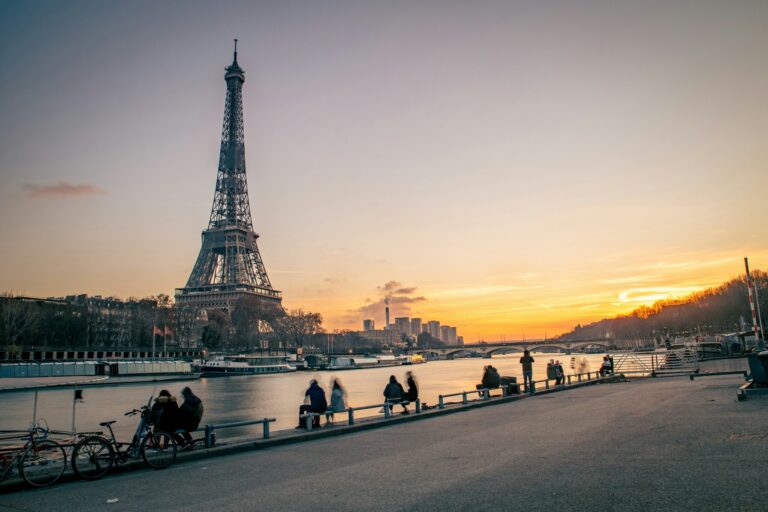As we move into the second half of 2024, the retail landscape in Paris is undergoing a significant transformation, driven largely by a growing demand for experiential retail. This shift is particularly noticeable in the Champs-Élysées, one of the world’s most famous shopping avenues, which has become the epicenter of this trend. With the approach of the 2024 Paris Summer Games, Paris is experiencing a surge in retail activity, with international tourists and local residents seeking more than just products—they are looking for immersive, interactive experiences that blend the physical and digital worlds of retail.
One of the most significant catalysts for this transformation is the Paris 2024 megastore located on the Champs-Élysées. Opened in late June 2024, the store spans over 1,000 square meters and offers a wide range of official merchandise for the Olympic and Paralympic Games. This flagship store is not just a place to shop but a destination designed to engage visitors in a memorable experience. The store features interactive displays, augmented reality (AR) activations, and even live events that showcase Olympic athletes and the Games’ rich history. This type of immersive environment is a perfect example of the growing trend in the retail market: creating spaces that offer more than just a product for sale but an experience that connects customers to a larger narrative or event.
The Paris 2024 megastore is also equipped to handle high foot traffic, with up to 10,000 customers expected to visit daily. The store’s extended operating hours and the presence of over 250 staff members highlight the demand for this type of experiential retail space. These experiences aim to create lasting memories, encouraging visitors to spend more time in the store and engage with the brand in a more meaningful way. This shift towards experiential spaces is indicative of a broader trend in the retail market, where customers seek more personal, engaging experiences rather than simply browsing products.
In addition to the Paris 2024 megastore, other brands have embraced this trend and are investing in creating pop-up shops, showrooms, and interactive concept stores throughout Paris. For example, global brands in fashion and luxury goods are increasingly incorporating virtual reality (VR) and augmented reality (AR) technologies in their retail environments to allow customers to virtually try on clothes, view products in 3D, and interact with the brand in ways that go beyond traditional shopping methods. This shift is not only changing how consumers shop but also how they connect with brands on a deeper level.
Flexible Lease Structures: Landlords in Paris are quickly adapting to these new retail trends by offering more flexible lease terms to accommodate the changing needs of retailers. With the rise of experiential spaces, landlords are more inclined to offer shorter-term leases, pop-up opportunities, and sales-based rent agreements to allow brands to experiment with new concepts and business models. This approach provides brands with the flexibility to scale up or down based on the success of their retail experiences.
The demand for flexible and dynamic retail spaces has also led to the rise of temporary retail spaces. With events like the Summer Games bringing an influx of tourists to Paris, pop-up shops are becoming an increasingly popular choice for brands that want to make a big impact without committing to a long-term lease. These temporary spaces allow brands to engage with visitors during high-demand periods, especially in key tourist areas like the Champs-Élysées, while minimizing the risk of long-term commitments. This has led to a surge in leasing activity in the area, with over 60 retail transactions recorded on the Champs-Élysées in the past year alone.
Retail’s Post-Pandemic Shift: The shift towards experiential retail is also a response to changing consumer behavior following the pandemic. During the pandemic, many shoppers turned to online retail, and now that in-person shopping is returning, they expect more from the physical retail experience. Retailers are realizing that it’s not enough to simply offer products—they must also offer an experience that customers cannot get online. As a result, retailers are investing more in creating interactive and immersive experiences that draw customers into the store, where they can touch, try, and experience products in person. This trend is expected to continue in the coming years, especially as cities like Paris become more focused on tourism and large events.
In summary, Paris’s retail market is undergoing a significant transformation, driven by the increasing demand for experiential retail spaces. With the 2024 Paris Summer Games approaching, retailers and landlords are embracing new technologies, flexible leasing options, and immersive experiences that enhance customer engagement. The Champs-Élysées, once known for its high-end luxury retail stores, is now becoming a hub for innovative, tech-driven shopping experiences. As more global brands invest in pop-ups, showrooms, and experiential spaces, Paris is poised to remain at the forefront of global retail trends, offering both residents and tourists a unique, engaging, and unforgettable shopping experience.
This shift marks a new chapter in retail, where the boundaries between physical and digital shopping continue to blur, creating new opportunities for both retailers and customers. Paris is clearly setting the stage for the future of retail—one that is focused on experience, engagement, and innovation.
